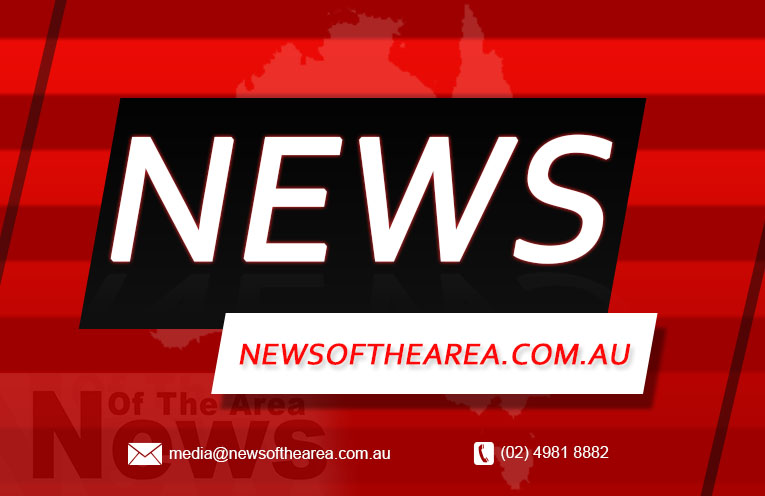THE new Commonwealth Government has delivered its first Budget with a projected deficit of $36.9 billion for the 2022/23 financial year, with an improvement of $41.1 billion coming off the back of high income tax receipts and high commodity prices.
As always, the release of the Federal Budget last Tuesday brought with it a variety of opinions from across the country, with the NSW Government saying the Budget failed to address the national energy bill crisis.
 Advertise with News of The Area today.
Advertise with News of The Area today.It’s worth it for your business.
Message us.
Phone us – (02) 4981 8882.
Email us – media@newsofthearea.com.au
NSW Treasurer Matt Kean said the Federal Government had failed to help the nation’s consumers who are facing bill shock as global forces lash the National Energy Market.
“It’s a national problem that requires a national solution.
“Consumers have been shortchanged,” Mr Kean said.
The Federal Budget delivered $7.5 billion in cost of living relief across the country, while the 2022-23 NSW Budget delivered $7.2 billion for NSW alone.
“We saw the Albanese government campaign on cost of living and a promise to slash electricity bills; tonight they barely delivered, giving people a sense of what a Labor election promise is worth,” Mr Kean said.
The NSW Government however welcomed the Commonwealth’s commitment to childcare, housing and climate change.
Meanwhile, Business NSW described Treasurer Jim Chalmers’ Budget as “reasonable and proportionate”.
“A New Housing Accord between government, investors and industry will see an initial $350 million invested in this Budget to kickstart the delivery of one million new homes across the country over five years from 2024,” said a Business NSW statement.
“This Budget also locks in some key measures discussed at the recent Jobs Summit, with an increase to the permanent Migration Program for this financial year from 160,000 to 195,000 investing $42.4 million to accelerate visa processing and 180,000 fee-free TAFE places to be delivered next year.
“The Budget includes higher subsidies for more than 1.2 million eligible Australian families in early childhood education and care, which will see cost-of-living relief.
“This is expected to increase the paid hours worked by women with young children by up to 1.4 million hours a week.”
Defence representatives have also celebrated the Budget, with defence funding to rise to over two percent of GDP over the forward estimates – the highest level in decades.
New measures in the 2022-23 Budget prioritise valuable partnerships with Australia’s Pacific neighbours and deliver targeted investments in climate security, defence force capability and grants for our regions and communities, which make significant contributions to our Defence community.
In addition to the $270 billion investment in Defence’s capability over the decade to 2029-30, the Albanese Government has focused on investing in Defence’s strategic priorities, capability and sustainability.
Deputy Prime Minister, the Hon. Richard Marles MP said, “The 2022-23 Budget delivers on our election commitments and reinforces Defence’s readiness and capability to support our nation and promote stability and prosperity in our region.
“As we face the most challenging geopolitical circumstances since the Second World War, the Albanese Government is committed to properly managing every dollar of defence spending, and ensuring Defence can deliver the capabilities ADF personnel need, when they need them.”
NSW Farmers President Xavier Martin says while the first Labor Budget contains promising announcements, rural communities will be “bitterly disappointed”, with concerns over long-term water spending and water buybacks.
“It may seem strange to talk about drought while much of the state is in flood, but farmers know Australia goes through a cycle of wet and dry – this is precisely the time we need to be planning ahead for drought,” Mr Martin said.
Investments into research and development to help lower emissions from agriculture was a positive move, Mr Martin said, as were efforts to improve education and training amid a major worker shortage.
People with Disability Australia (PWDA) welcomed the Budget as “thoughtful overall” – recognising the attention to NDIS and other targeted reforms, including education and skills measures, housing and women’s safety.
PWDA praised a renewed attention to the NDIS.
“The seventeen percent rise to support costs and an increase in individual supports will see benefits flow to NDIS participants,” said Samantha Connor, PWDA President.
PWDA also welcomed the announcement of $12.4 million to reduce the number of appeals and an additional $21.2 million to support participants and their families with appeals.
Along with funding to appoint 380 additional permanent frontline NDIS staff, PWDA said this Budget has the potential to reduce some key stressors for people with disability who are NDIS participants.

